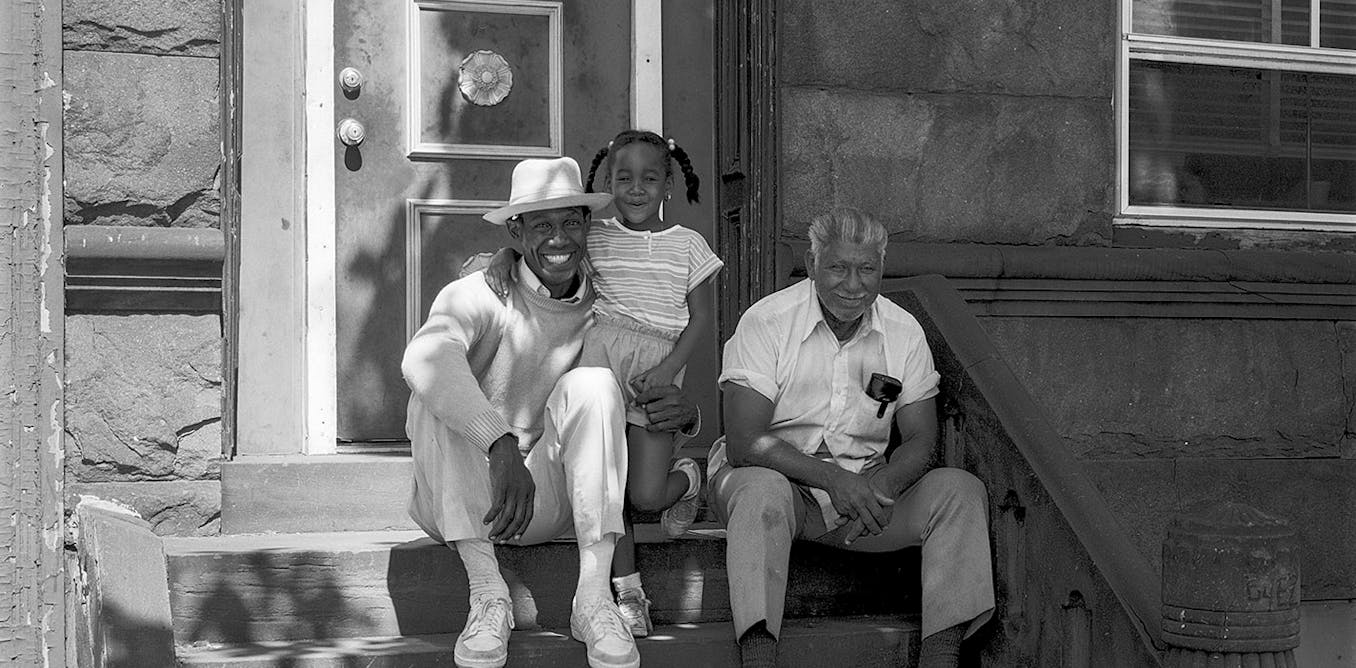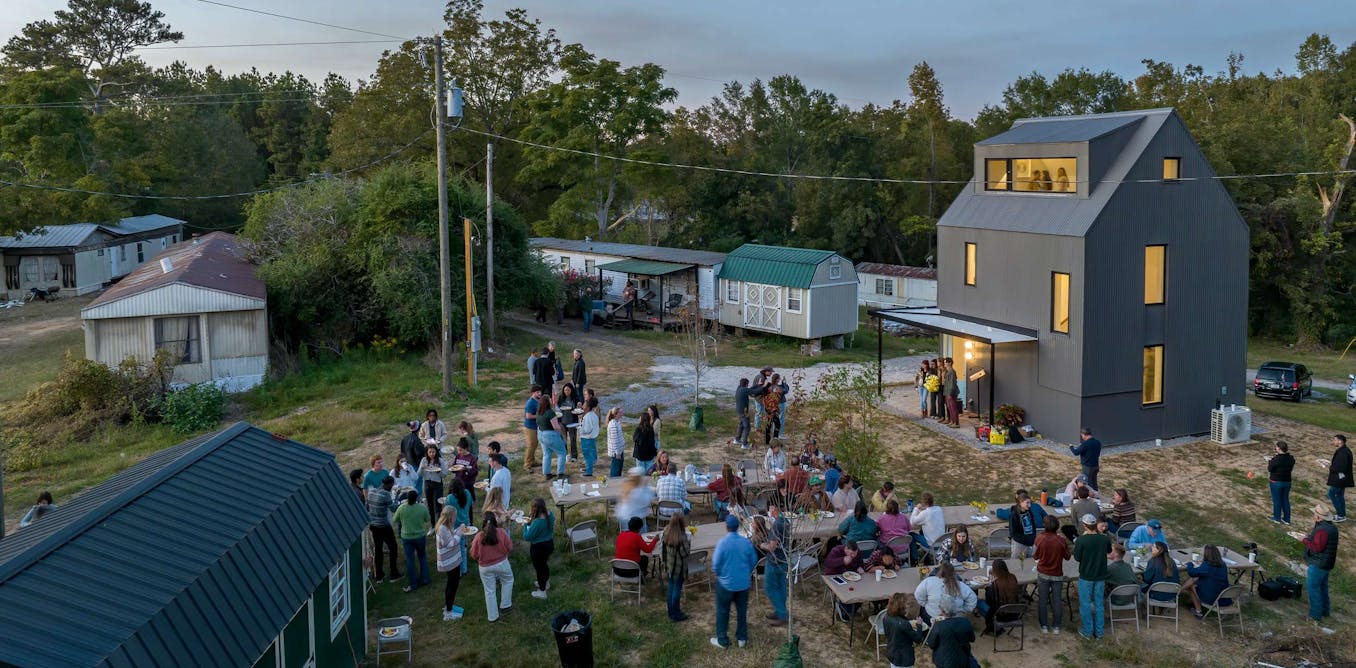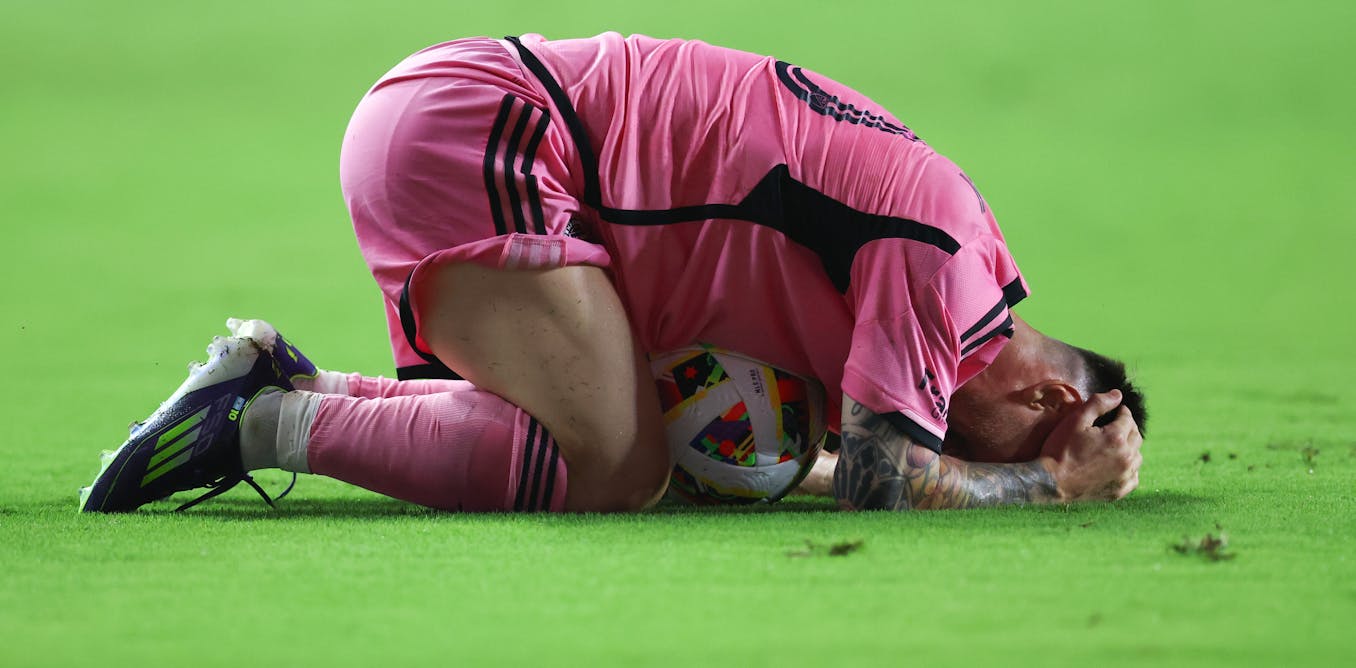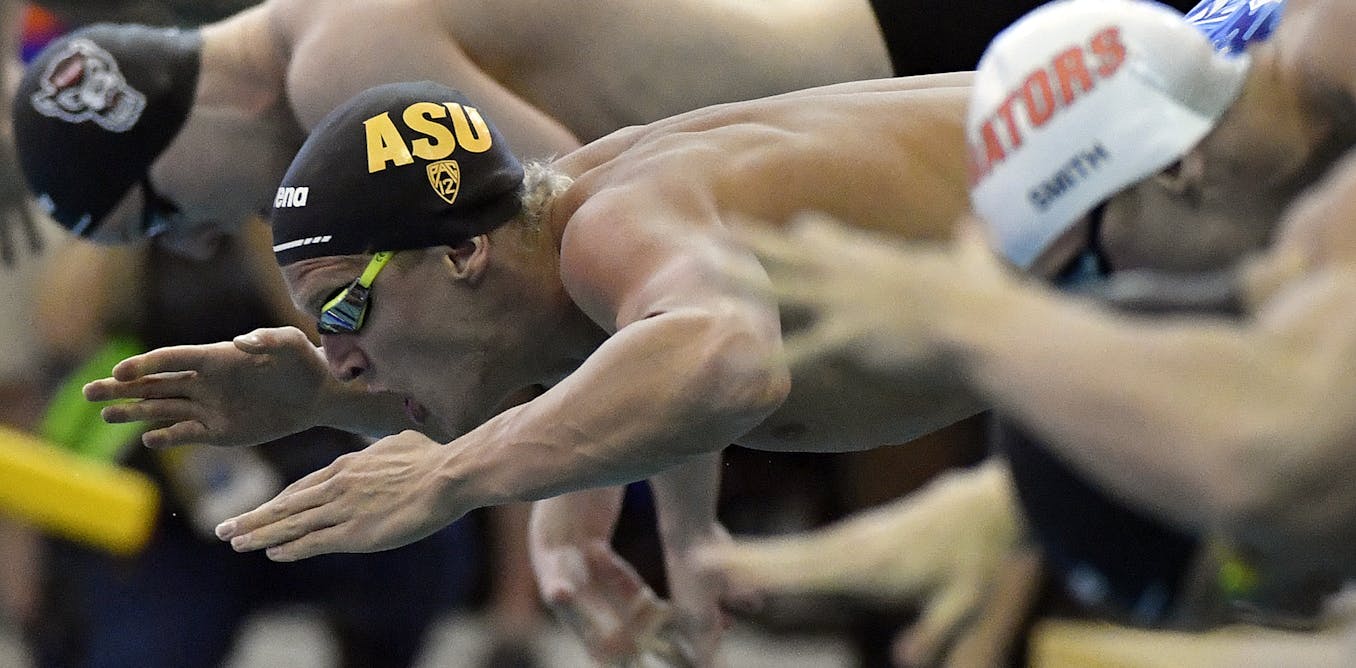To celebrate Father’s Day, The Conversation U.S. asked Philadelphia anthropologist, playwright and poetic ethnographer Kimmika Williams-Witherspoon to reflect on a poem she recently performed to accompany a 1986 photograph by Philadelphia photographer Joseph V. Labolito.
Williams-Witherspoon, who also serves as senior associate dean of the Center for the Performing and Cinematic Arts at Temple University, shares how the collaboration came about, and why one of Labolito’s photos in particular brought back a rush of cherished memories of being a little girl hanging out with her dad.
Joseph V. Labolito/Philadelphia Collections
There Are Black Fathers
To Daddy, Father’s Day, June 19, 1983
I’ve known men
Who rise at dawn
To run a sort of race;
Working through sleep
Stopping long enough to yawn
Providing for their families Just a little
place.
Black men going, going, going
(sometimes, till their gone.)
I’ve known men
Who trudge home after long hours
And an even longer pain,
And still manage to smile,
Warmed by the voice of a child.
"Hi, Daddy!"
"How was your day?"
I’ve known men Who take care
Even when Mommy can’t.
And, even though they can only
Cook hamburgers really good,
They put band-aids on awfully well.
I’ve known men
Who loving replace lost teeth
With shiny new dimes;
Remember birthdays and Christmas’.
Dutifully repair
Old, broken toys And, even, sometimes,
Wipe away salty tears.
I’ve known men
Who reprimand,
Teach us values
And, if we’re lucky,
Along with Mom,
Help us take a stand.
Who calm us when we’re frightened;
Scare us when we’re bad — Hold our hands.
I’ve known men,
Not just as Fathers;
But, more so, as "Dads" —
Who give us what we get
And gave us what we had.
Loving and kind;
Stern, yet strong,
I’ve known men
Who’ve guided generations along
As provider, supporter, parent — Pop, Dad!
There are Black fathers
Who would gladly do it again
Parenting future generations.
Yes, I have known These men.
© 2025 Kimmika L. H. Williams-Witherspoon
What do you want people to take away from the poem?
The whole poem is a tribute to my father, Samuel Hawes Jr., who lived from 1920 to 1989, and the many men like him who were always present and participatory in the parenting of their children and the providing for their families.
Because of stereotypes and popular culture – media, movies, news stories – that tend to demonize and pathologize Black men, there’s a myth that men in our communities are all cut from the same cloth.
For me, the poem discounts that stereotypical narrative and celebrates the African American men that I knew growing up – Daddy, my uncles, the deacons in our church, the neighborhood dads on my block.
The men in this photograph represent men like Daddy, who at one point worked two jobs to provide for his family. He drove a yellow cab and worked the graveyard shift as a presser at the U.S. Mint. He took me to school every morning when I was in high school. He made it to every school function or occasion, drove me to and from parties so I could hang out with friends, took me to church every Sunday morning and on those special road trips to Cleveland, Akron, Ohio, and Fort Lauderdale, Florida, throughout my life.
Tell us about your collaborator for this piece
Joe Labolito is a Philadelphia photographer whose work, I believe, is visual ethnography at its best. Throughout the ‘80s, ’90s and 2000s, he documented the people, streets and neighborhoods of Philadelphia. His photographs are housed in several public and private collections, including the Special Collections Research Center at Temple University and the Free Library of Philadelphia’s Print and Picture Collection.
About a year ago, I saw an exhibit of Joe’s work at Temple. Since that time, I have been using some of his photographs as a visual prompt for my students, while he and I talked about doing something together down the road.
When I was asked to participate in Temple University President John Fry’s investiture events in March 2025, I asked Joe if he wanted to do something with me. Right away he said “Yes … whatever it is.” I asked him to send me maybe 25 of his favorite photos, and instead, he sent me about a hundred. When I got a minute to sift through them, there were 11 that, as soon as I looked at them, immediately prompted lines of poetry.
This photograph of the two men and the little girl, however, made me remember an old poem, “There Are Black Fathers,” I had written a long time ago – on Father’s Day on June 19, 1983 – for my father before he passed away from prostate and bone cancer. I went digging through my old journals until I found the poem that I had written for Daddy, and I performed that poem to this photograph at the event.
What stood out to you about this photograph?
The juxtaposition between the men and the little girl – their beautiful, bright smiles, the joy they seemed to radiate – it all made me think about and remember how much I loved Daddy my entire life but especially as a little girl.
That’s the power in these kinds of artistic, material and visual artifacts. This photograph transported me right back to my childhood, filled with the warmth of a summer’s day, hanging out with my dad, and the promise of a banana Popsicle later in the afternoon.
What is your process for writing a poem to accompany a photograph?
Whatever the prompt – a photograph, a landscape, a person I’ve passed on the street, a word or phrase – the first draft is a free-write sensory download dump. I ruminate and then write down everything that comes to me in whatever order it comes.
And then with each subsequent draft or pass at it, I start reading the poem out loud and tweaking it, making edits, moving and changing things while crafting lines that frame and build the story. I read the piece aloud over and over and over again until the poem tells me when I’ve got it right. I don’t know how, but my ear will tell me when it’s done and right with my spirit.
What is poetic ethnography?
Ethnography is an area of anthropology. From the Greek word “ethnos,” ethno simply means people or culture, and graphy, from the Greek word “graphia,” is the writing about said people or culture.
Traditional ethnographies are usually written in a diarylike journal form. You end up jotting things down – thoughts, feelings, expressions, verbatim texts from interview participants – alongside bits and pieces of theory that correlate. Field notes are a combination of prose and scientific inquiry. I am a proponent of compiling poetic ethnographies – turning my observation and investigation of cultures, communities, and my field notes, into poetic form.
Growing up in Philadelphia and a product of Philadelphia public schools, my primary language is mainstream U.S. English, but I tell people that my actual language is poetry. I see the world through poetry, and through the medium of poetry, I think I am better able to articulate the world I see.
Read more of our stories about Philadelphia.




